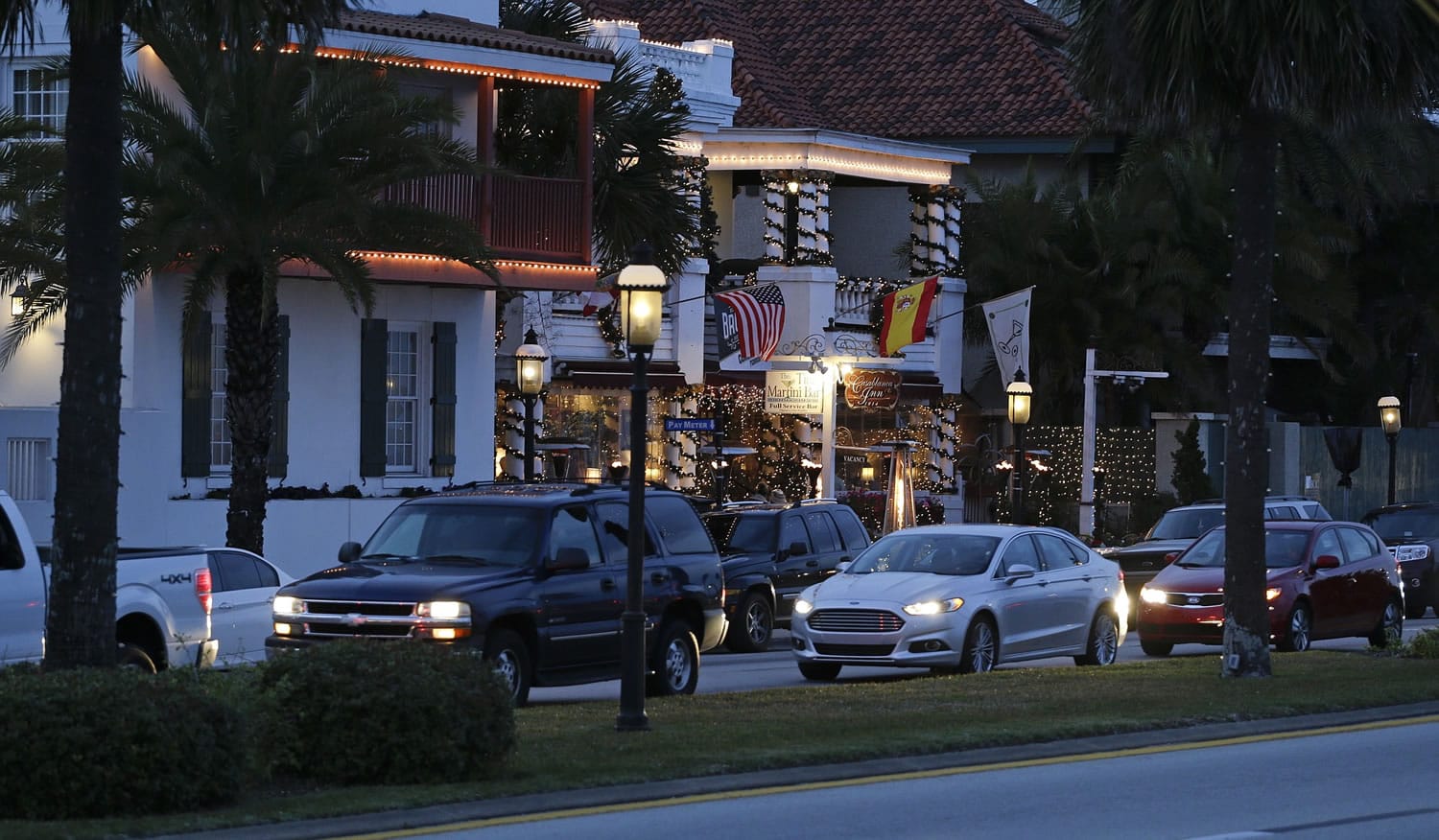ST. AUGUSTINE, Fla. — America’s oldest city is slowly drowning.
St. Augustine’s centuries-old Spanish fortress sits feet from the encroaching Atlantic, whose waters already flood the city’s narrow streets about 10 times a year — a problem worsening as sea levels rise. The city relies on tourism, but visitors might someday have to wear waders at high tide.
“If you want to benefit from the fact we’ve been here for 450 years, you have the responsibility to look forward to the next 450,” said Bill Hamilton, whose family has lived in the city since the 1950s. “Is St. Augustine even going to be here? We owe it to the people coming after us to leave the city in good shape.”
St. Augustine is one of many chronically flooded communities along Florida’s coast, and officials in these diverse places share a concern: They’re afraid their buildings and economies will be further inundated by rising seas in just a couple of decades. The effects are a daily reality in much of Florida. Drinking water wells are fouled by seawater. Higher tides and storm surges make for more frequent road flooding from Jacksonville to Key West — and they’re overburdening aging flood-control systems.
But the state has yet to offer a clear plan or coordination to address what local officials across Florida’s coast see as a slow-moving emergency. Republican Gov. Rick Scott is skeptical of man-made climate change and has put aside the task of preparing for sea level rise, an Associated Press review of thousands of emails and documents pertaining to the state’s preparations for rising seas found.
Despite warnings from water experts and climate scientists, skepticism over sea level projections and climate change science has hampered planning efforts at all levels of government, the records showed. Florida’s environmental agencies under Scott have been downsized, making them less effective at coordinating sea level rise planning in the state, documents showed.
“If I were governor, I’d be out there talking about it (sea level rise) every day,” said Eric Buermann, former general counsel to the Republican Party of Florida and a former water district governing board member. “Unless you’re going to build a sea wall around South Florida, what’s the plan?”
The issue presents a public works challenge that could cost billions here and nationwide.
Communities like St. Augustine can do only so much alone. Cities lack the technology, money and manpower to keep back the seas by themselves.
In a brief interview with the AP in March, Scott wouldn’t address whether the state had a long-range plan. He cited his support for Everglades restoration and some flood-control projects as progress but said cities and counties should contact environmental and water agencies to find answers — though Scott and a GOP-led legislature have slashed billions from those agencies. Spokespeople for the water districts and other agencies disputed that cuts have affected their abilities to plan.
In a statement, Scott said the state will continue investing in Florida’s environment.
Florida’s Department of Environmental Protection is in charge of protecting the state environment and water but has taken no official position on sea level rise, according to documents.
In St. Augustine, flooding has long been problematic, but residents say it’s worsened over the past 20 years. St. Augustine’s civil engineer says the low-lying village will probably need a pumping system to keep water out — but the state has been unhelpful.
“There’s no guidance. … Everything I’ve found to help I’ve gotten by searching the Internet,” engineer Reuben Franklin said.
Water quality is one of the biggest concerns. It’s especially bad in South Florida — Hallandale Beach has abandoned six of eight drinking water wells because of saltwater intrusion.
While South Florida water officials have led the charge in addressing concerns in their area, their attempt to organize a statewide group was unsuccessful, documents show. Scott’s administration has organized just a few conference calls to coordinate local efforts, records show.
Meanwhile, government officials have been adamant that employees and scientists not “assign cause” in public statements about global warming, government emails show.
For example, a 2014 email approving a Department of Environmental Protection scientist’s request to participate in a National Geographic story came with a warning: “Approved. Make no claims as to cause … stay with the research you are doing, of course,” the department manager, Pamela Phillips, warned.
“I know the drill,” responded Mike Shirley, the state scientist.
Department spokeswoman Lauren Engel said Phillips was a lower-level staffer whose views did not necessarily reflect the entire administration. Scott refuted allegations that his administrations urges scientists not to assign cause when discussing climate change.
Scott administration officials are moving forward on a five-year plan that will provide basic guidance to cities dealing with sea level rise.
The Department of Economic Opportunity has received nearly $1 million in federal grants for the plan. More than half has been spent on staff time and travel or hasn’t yet been allocated, according to documents. The rest, about $450,000, went to contract researchers who are helping create the document, due in 2016.



